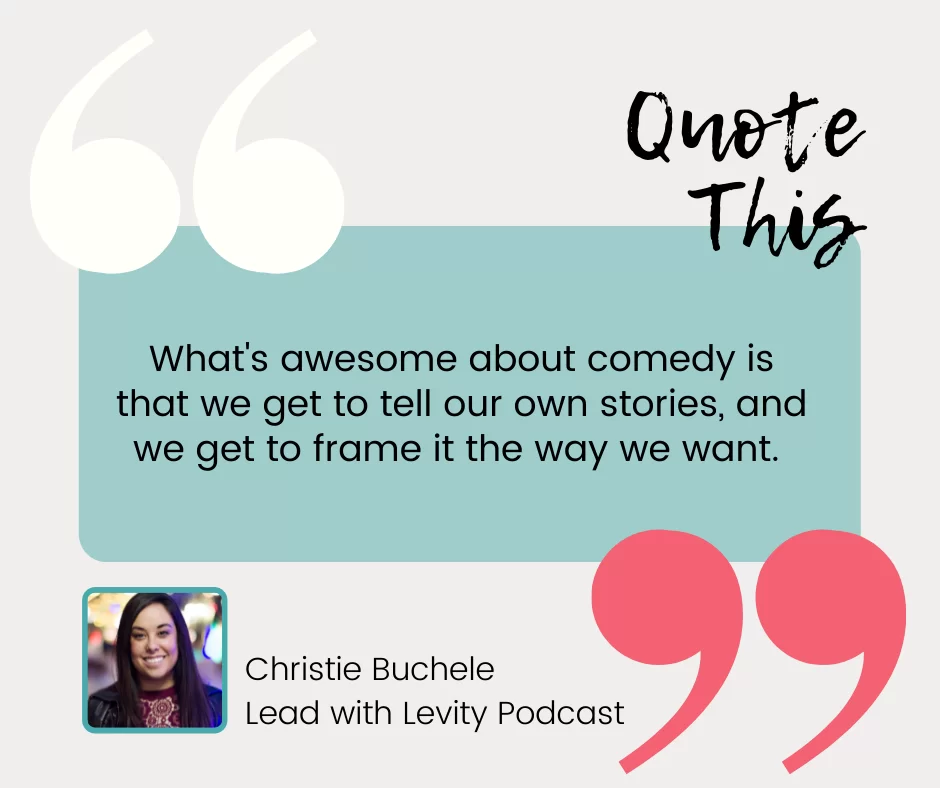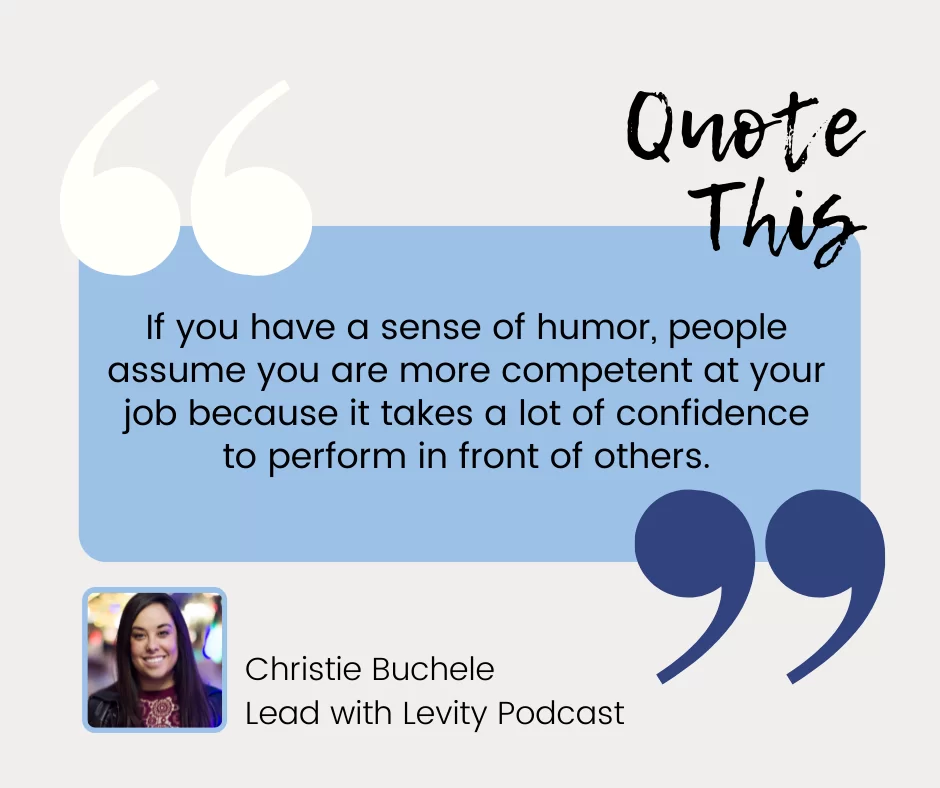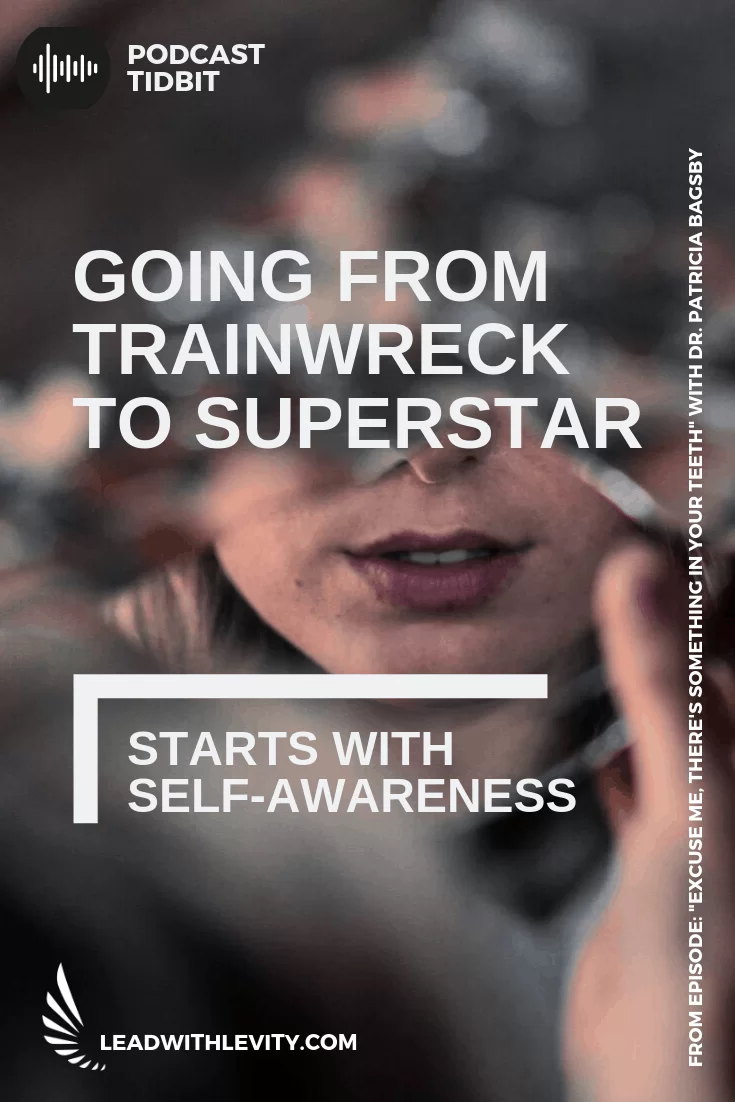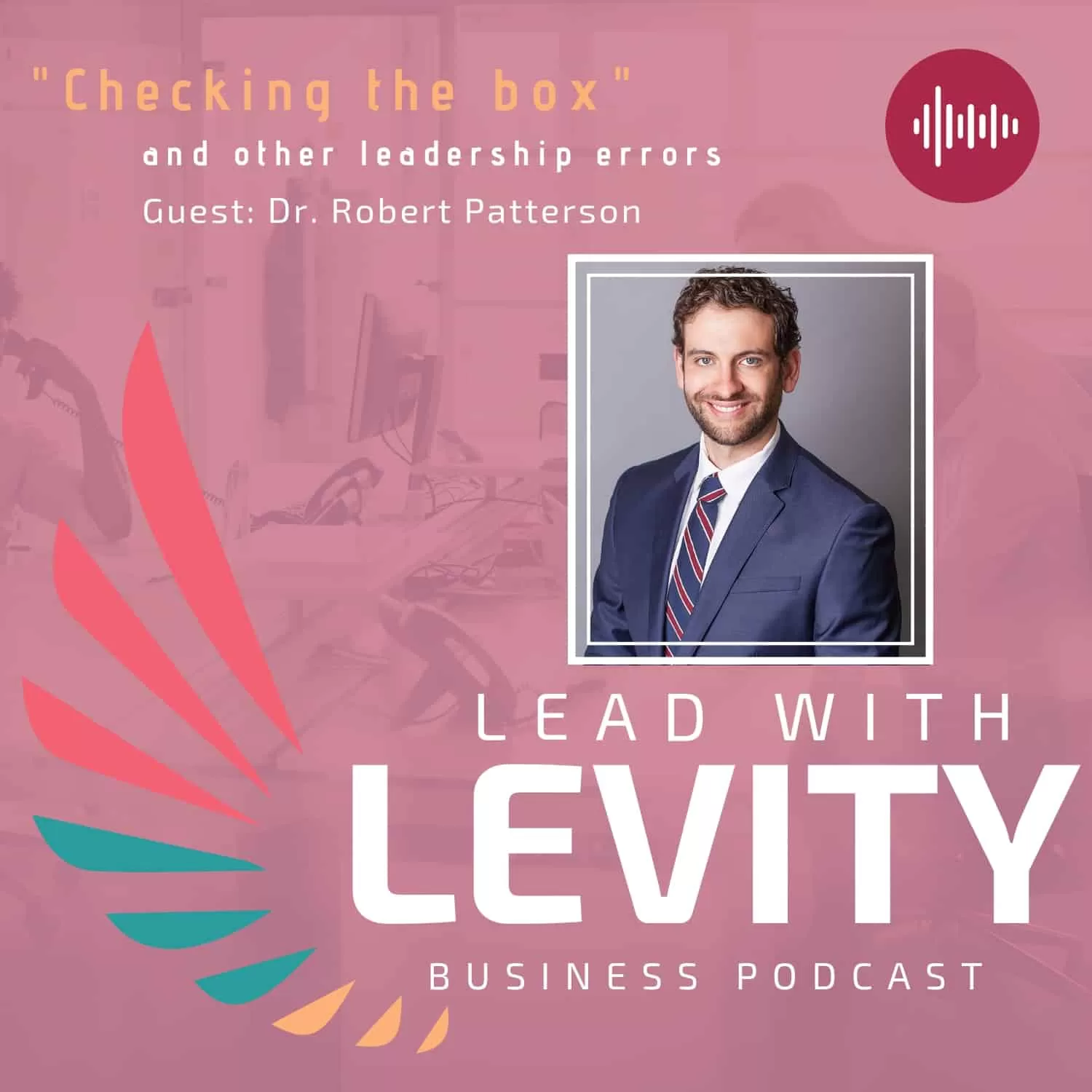Y’all sit down and get ready, because it’s Humor Appreciation Month! We are showcasing comedians this month so if you are interested in learning more about that, please check out the website.
Because it is Humor Appreciation Month, we better learn about some humor. Right? Today’s guest is Christie Buchele, a comedy instructor who has agreed to teach us how we can be at least 10% funnier.
Key Takeaways in this Episode:
- The moment when Christie figured out that she is funny
- How to get started writing comedy
- How to be a comedian – baby steps you need to know
- Reveal the two sides of comedy
- What are the purposes of comedy?
- Reveal the formula to become a successful comedian
- What to do when things don’t go well on stage
- Learning is success especially when you’re the leader
- The use of Humor in the workplace
Humor Starts with What You Care About
Christy believes great humor starts with personal experiences and emotions. To craft a memorable joke or story, focus on the things that genuinely matter to you. She suggests this exercise for aspiring comedians and leaders alike:
- Scan Your Day: Reflect on moments when you felt a strong emotional response—whether it was happiness, frustration, or curiosity.
- Ask Why: Identify why you reacted that way. What’s the deeper opinion or observation behind it?
- Write It Down: Use these moments as a springboard for jokes or anecdotes that resonate with you and your audience.
“Every joke starts with an opinion,” Christy explains. “It’s about connecting with the audience by showing them something they can relate to—whether they’ve experienced it themselves or just recognize the truth in it.”
The Secret to Relatable Humor
A great joke isn’t just about you—it’s about creating a shared experience. Christy’s formula for effective humor involves starting with a premise that invites your audience to relate to the topic.
For example:
- Observation: “When you have a disability, people talk to you like a child.”
- Premise: “It’s because they think they know what your disability is.”
- Story: Share an anecdote that highlights the humor in these interactions.
By grounding your jokes in universal themes like assumptions or insecurities, you can connect with your audience on a deeper level—even if they haven’t lived your exact experience.


Humor at Work: A Game Changer
Why should humor have a place in the workplace? According to Christy, humor can:
- Build Trust: A well-placed joke makes you more relatable and approachable as a leader.
- Show Confidence: People perceive those who use humor as more competent and self-assured.
- Boost Engagement: Humor lightens the mood, fosters camaraderie, and keeps people engaged.
“Studies show that using humor makes others see you as more confident and capable,” Christy explains. “It’s a powerful tool for building relationships and making the day more enjoyable.”
Practical Tips for Leaders
Christy’s advice isn’t just for stand-up comedians—it’s for anyone who wants to connect with others more effectively. Here’s how leaders can use humor to enhance their impact:
- Lead with Truth: Start by sharing an observation or opinion that your audience can relate to. This primes them to engage with your story.
- Be Vulnerable: Share personal anecdotes that show your humanity. When leaders admit their mistakes or laugh at themselves, it builds trust and strengthens relationships.
- Reframe “Failure”: Whether it’s a joke that falls flat or a presentation that doesn’t land, view every experience as a learning opportunity. As Christy says, “All learning is success.”
How to Find the Funny in Your Life
Not sure where to start? Christy recommends paying attention to moments that spark a strong reaction in you. Then, use the following steps to craft your story:
- Observation: What’s the situation?
- Premise: Why is this situation funny, weird, or relatable?
- Story: Share a specific example that brings your premise to life.
Takeaways from Christy’s Comedy Experience
Whether you’re leading a team or taking the stage, humor and storytelling can help you connect, engage, and inspire. As Christy reminds us, learning is success—even if things don’t go as planned. Embrace vulnerability, lead with authenticity, and always look for the humor in life’s challenges.
For more about Christy and her stand-up classes (available in-person and online), visit Rise Comedy. You can also follow her on Instagram for updates on her shows and insights into the art of comedy.
About Christie Buchele
Christie Buchele is a Denver-based comedian who “fell” into comedy in 2010 when she went to see a cute guy do an open mic and thought to herself “I can do better.” She was right. Despite being raised by her single father named Todd, Christie made a name for herself by joking about the heart-wrenching and hilarious realities of being a woman with a disability. Christie is a strong stand-up with weak legs and her comedy aims to make the audience think about how they perceive people with disabilities while making them hurt from laughter. Christie reps the Mile High City hard while crushing audiences with a wry, biting style that’s a bit sweet, and a little bit surly; proving time and again that you can say almost anything with a smile on your face and a gimp in your step.
http://www.kpcomedy.com/christie-buchele.html
http://facebook.com/Kirkland-Productions-123725907663590/
http://twitter.com/kirklandprod
BOOKING@KPCOMEDY.COM









